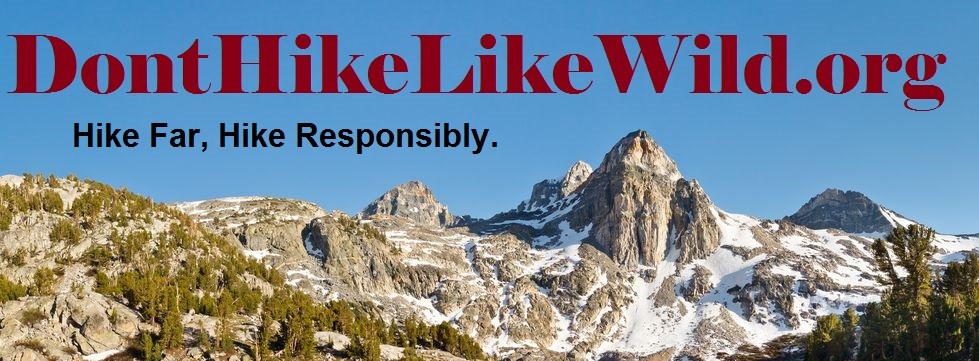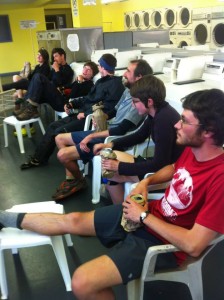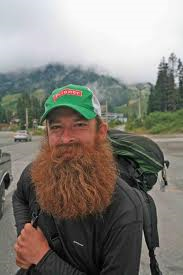What if bathing was now just a monthly occurrence? Imagine eating food fortified with mysterious, unidentified particles, and enjoying it. How would you fare living and sleeping in the dirt every day?
Those that spend months at a time living in the woods often experience a subtle shift of perspective concerning matters of socially acceptable behavior. Thru-hikers frequently report a gradual transformation into more ‘feral’ state, without normal regard to typical social standards for accepted conduct. After all, for those that may not shower for weeks, there begins to arise, out of necessity, a new definition of hygiene. It is easy to become one with the earth when you live in the dirt.
To understand what it means to be ‘hiker trash’ we must determine whether a behavior is merely haggard and salty, or truly raunchy and disrespectful. For better or worse, thru-hiker behavior is often put under the microscope when encountering normal townsfolk or even weekend campers. Consequently hikers should recognize that there is an important distinction between those that are merely scruffy and dirty, and those that are deliberately antisocial and inconsiderate.
Some hikers really identify with the ‘hiker trash’ label, while others resent the implication of somehow being viewed as a low-life. In the long distance hiking community, there seems to be two emerging categories of thru-hikers: Some are the outdoorsy, modern-day John Muir types, who are thoughtful of their impact on the land and the people around them. They hike while following a fairly well defined set of leave-no-trace principles.
Other hikers are less conscientious. They might leave trashed campsites, poop wherever the urge strikes and engage in rowdy, drunken behavior when they get to town. Subsequently the actions of a few hiker trash can affect the reputation of all thru-hikers.
For Cheryl Strayed, the PCT was a process of learning as you go. Strayed describes that her first act on the trail was to open up her first aid kit to treat her already blistered feet. The winds of Tehachapi Pass subsequently scattered her gauze and band-aids far and wide, where they most likely remain today. When she realized that she had no idea how to use most of her equipment she bailed off the trail through the desert, relying on the kindness of strangers to bail her out.
To be fair, it should be noted that Strayed gradually became more competent as her trip progressed. By the time she was in Oregon she had become a wiser and toughened hiking machine. Strayed gets a dose of her own medicine when she meets a pair of hapless, misogynist bow hunters panicked with thirst because they have only packed in a case of soda to drink. She loans them her water filter, which they promptly break, without apology.
Some in the hiking community have expressed concern that new and unexperienced hikers will attract negative attention for some hapless, inconsiderate action. However it is often the grizzled veteran hikers who unfortunately are responsible for unruly behavior that creates negative impressions in the community, and even gets hikers a banned from some establishments.
For a person living in the wilderness for months at a time, it is easy to fall into the mindset of a rugged individualist. A mountain man does what he wants, when he wants. Thru-hikers often feel as free as the wind that buffets them.
The truth however is that over 2000 people are expected to attempt to thru-hike the PCT this year. And because of seasonal requirements, most of them will be bunched up in a range of only a few hundred miles. This moving ‘bubble’ of hikers becomes a de-facto community of individuals living out a common adventure. As a result, the actions of one hiker often directly affect the others, as well as impacting the trail environment and the towns and villages through which it passes.
So while it may be fun to surrender to the identity of ‘hiker trash’, it is also important to recognize that we also have a responsibility to each other. Sure, Hike Your Own Hike is an important mantra. However since one person’s manner and decisions have an important effect on others, it might be wise to keep our rough and crude behavior in check.


